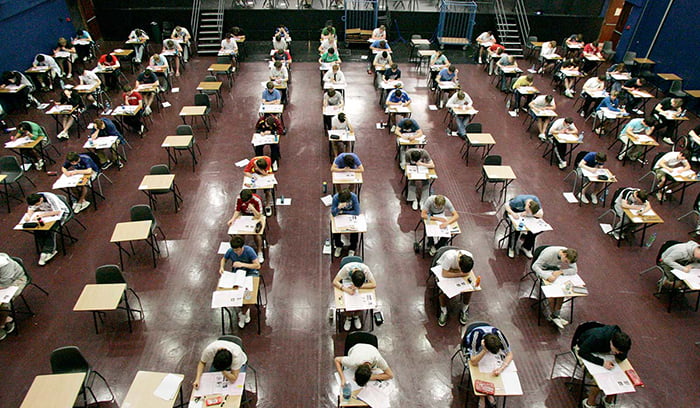Students of 2020 received twice the H1 grade in many subjects for Leaving Cert Exams
More marks than expected for 2020 students. The Department of Education found that teachers gave H1 grades more than expected in many subjects on traditional Leaving Cert exams.
The results of 2020 also show that in some subjects they were given three times more than the H1 grades. There is no evidence that a performance like this was expected of the students in 2020, the department said.
The results of the grade process show that more than four in five of students receive grades based on their teachers’ estimates, or higher, 17 percent of grades below the school estimate.
Information of some unreasonable high marks handed down by the teachers were drawn up today as the government signed a final agreement to determine the grades for the 2020 batch, which was unable to complete the exam in June due to Covid-19.
As a key step in deciding how candidates would have fared had they sat the exams, the cabinet agreed to remove the School’s Living Cert track records in 2017-19. The department will not confirm the impact of the move, but it is likely to play a key role in the overall finalisation of students in Deis schools.
In many cases the marks of the teachers were maintained and in many other cases they were increased. Overall, the 2020 results show higher-grade inflation than normal statistics acceptable.
The leap in overall results will not be known until Monday, but given the extraordinary circumstances of this year, the department said it would prioritize students of 2020 for reasonable.
Although the data are still in the final stages, the current trends of 410,000 grades offered to 57,000 candidates for the traditional Leaving Cert show that the standardization process is being followed.
The overall 83pc of grades are at or above the teachers’ marks, with 17pc below the school’s estimate and overall 79pc of school-estimated grades are unchanged.
The school raised the overall grade by 4 per cent. In Deis schools 5pc of grades increased, compared with 4pc in non-Deis schools.
Overall, 16pc of school grades is reported to have been decreased by one grade. In Deis schools 14pc of grades were reduced, compared with 17pc in non-Deis schools. All school grades have been dropped to 0.1pc to two or more.
Education Minister Norma Foley has sought approval from the government for a decision to cancel the use of a school’s past performance, motivated primarily by events in the UK.
In England 40pc of teachers’ marks were downgraded, while in Scotland it was 25pc.
Minister Norma Foley said she was concerned about the government’s permission to remove how a school historically performed on the Living Certificate as a measure to calculate final grades.
She also said that the system for marking students’ achievements in post-primary education would be the best possible system under these challenging safeguards.
“I have considered the effects and impacts of the standardisation model we are using, the importance of ensuring that students from disadvantaged backgrounds are not treated unfairly and the experiences in other jurisdictions in this regard,” she added.
She stated the process of national standardisation would ensure uniform approach across schools, so no student would be disproportionately advantaged or disadvantaged.
Although the process is still being run, the preliminary data indicates that there need be no concern about students being unfairly disadvantaged by the process. This is the fairest approach and the right approach.
A spokesman for the Department of Education said making changes after the outcome would put some pressure on students.
With the announcement of an additional 1,250 college locations today, the department expects more CEOs to receive the offer this year.
Removing the previous Leaving Cert results of a school from the equation means they relied more on teacher assessments on what their students could accomplish at the state examination.



Comments are closed.